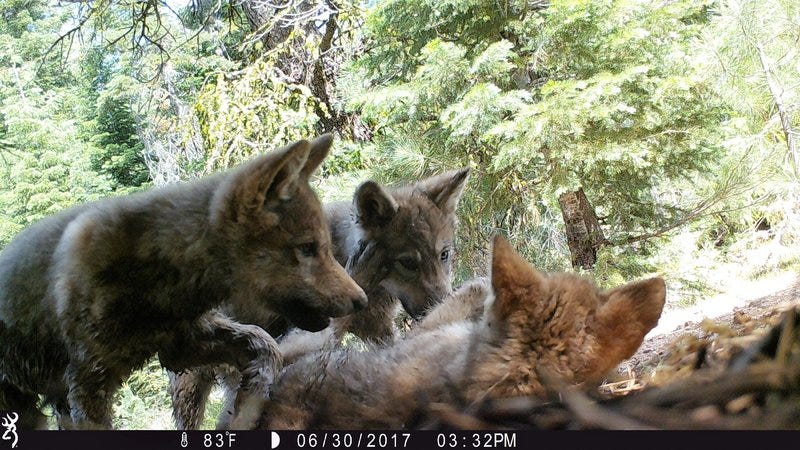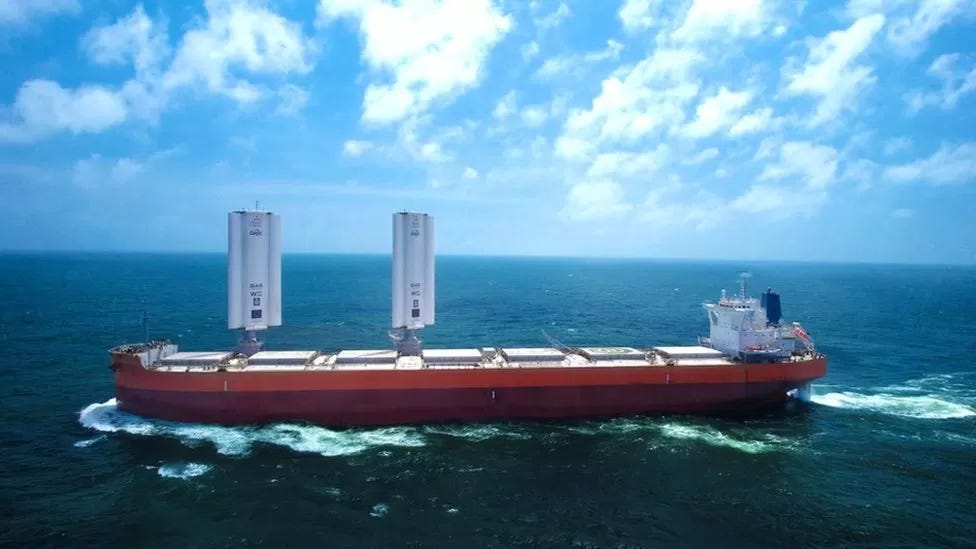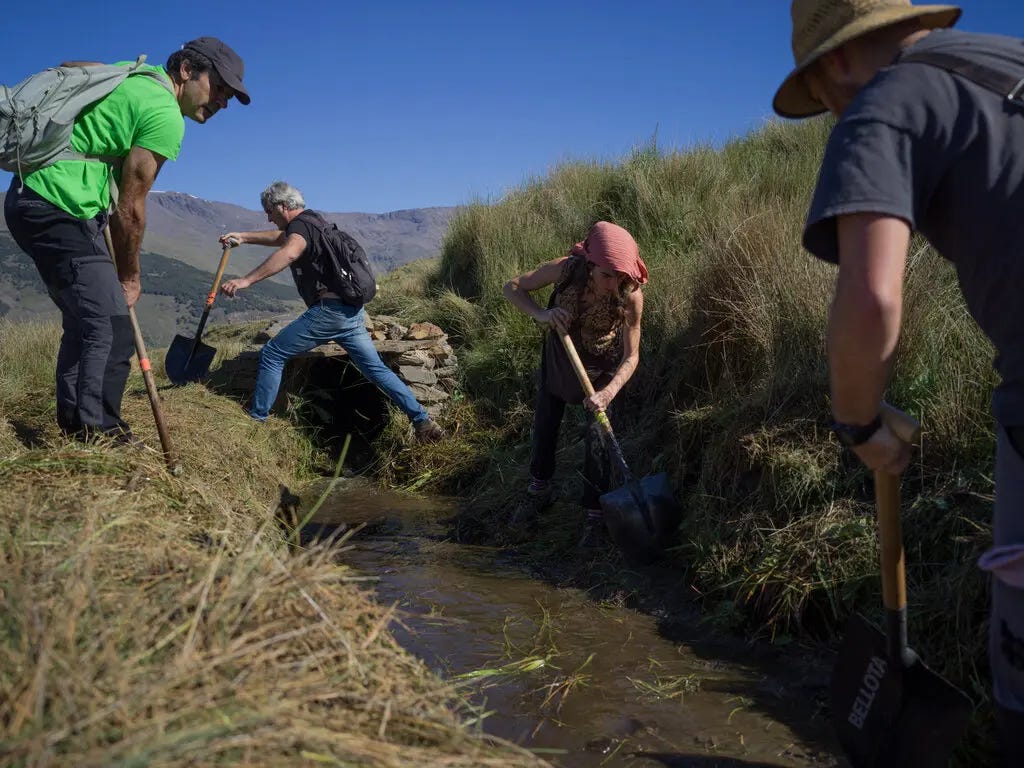The Weekly Anthropocene, August 30, 2023
New wolf packs in California, the Inflation Reduction Act keeps rocking, a partially wind-powered container ship, and more!
California
Wolves were eradicated from California in the 1920s, but are making a triumphant return in the 2010s and 2020s, starting with the arrival of wolf OR-7 from Oregon in 2011. More wolves wandered into the state in the next few years, and started to form families: the Shasta Pack in 2015 (now disappeared, possibly killed), the Lassen pack by 2017, and the Whaleback and Beckwourth Packs in 2021. (The Lassen, Whaleback, and Beckwourth packs are still going strong as of 2023). Now, in August 2023, the California Department of Fish and Wildlife confirmed the identification of a new wolf pack, in Tulare County’s Sequoia National Forest, consisting of at least five wolves: two female pups, two male pups, and their mother. That’s 200 miles away from the nearest other wolf pack, and the farthest south in California that wolves have reached in over a hundred years. DNA analysis reveals that the mother wolf in the Tulare County pack (and thus, her pups as well) are direct descendants of OR-7!
The return of wolves to California is important on a local level for the health of the state’s ecosystems, but also on a global level as a symbol of human/wildlife coexistence in the Anthropocene. This is the archetypal predator that humans hate and fear, long unfairly maligned as the “Big Bad Wolf”, reestablishing thriving populations within California, a worldwide emblem of modernity. Great news!
For more background on the epic saga of wolves’ return to the Golden State, check out The Weekly Anthropocene’s interview with Amaroq Weiss, Senior Wolf advocate.
United States
The historic, economy-transforming Inflation Reduction Act was signed into law in August 2022. One year later, it’s outperforming its supporters’ wildest dreams, with consistent federal funding for clean energy sparking an unprecedented manufacturing boom across America. The map above shows the booming new battery, EV, solar, and wind factory projects announced since the IRA was passed.
“In just 12 short months, Biden’s Inflation Reduction Act has spurred more than 100 new cleantech manufacturing announcements and nearly $80B in private investment.”
-Canary Media
New Innovations
Another partially wind-powered modern container ship has set sail, part of a rising wave of decarbonizing industrial shipping. It’s called the Pyxis Ocean, owned by Mitsubishi, and is voyaging from China to Brazil with the help of prototype “WindWing” solid sails that were designed by the UK’s BAR Technologies, manufactured in Norway by Yara Marine, and added to the ship in Shanghai. They should replace an average of 1.5 tonnes of fuel per WindWing per day, reduce the Pyxis Ocean’s emissions by about 20%, and on new-build ships could reduce emissions by up to 30%! This is big, as industrial-scale shipping is a vital component of the global economy and contributes a full 3% of global greenhouse gas emissions. Great work!
"I do predict by 2025 half the new-build ships will be ordered with wind propulsion.”
-John Cooper, BAR Technologies
California’s historically conservative and agricultural Central Valley is changing fast due to climate change-induced droughts. The Westlands Water District is now planning to convert 100,000 acres of its 600,000 acres of increasingly arid farmland into solar farms.
British scientists have successfully tested, at three sites, a network of AI-controlled cameras and microphones to automatically identify wild animals based on their appearance and sounds, then log and record that data. Biodiversity research has the potential to scale up massively as tech like this becomes more widely used!
Recycling in the US has long been languishing, in large part due to difficulties in sorting waste into different recyclable materials. A startup called Amp Robotics is among the enterprises now trying to solve this with fast-sorting AI-enabled robots. Two of them, “Sorty McSortface” and “Sir Sorts-A-Lot,” are already at work in Colorado’s Boulder County Recycling Center. If this can scale, it could be really helpful, potentially even breathing some life back into the long-cherished hope of a “circular economy.”
Spain
Residents of the Spanish region of Andalucia are excavating and resuscitating an abandoned centuries-old network of underground irrigation canals to help rural communities deal with climate change. Thousands of miles of acequia canals, from the Arabic as-saqiya, were built in medieval “al-Andalus,” when most of Spain was ruled by Muslim states. Now, an archaeologist-coordinated restoration project, aided by hundreds of volunteers, has recovered more than 60 miles of canals across Andalucia, allowing some drought-stricken villages to begin growing fruit again. The project continues to expand!






